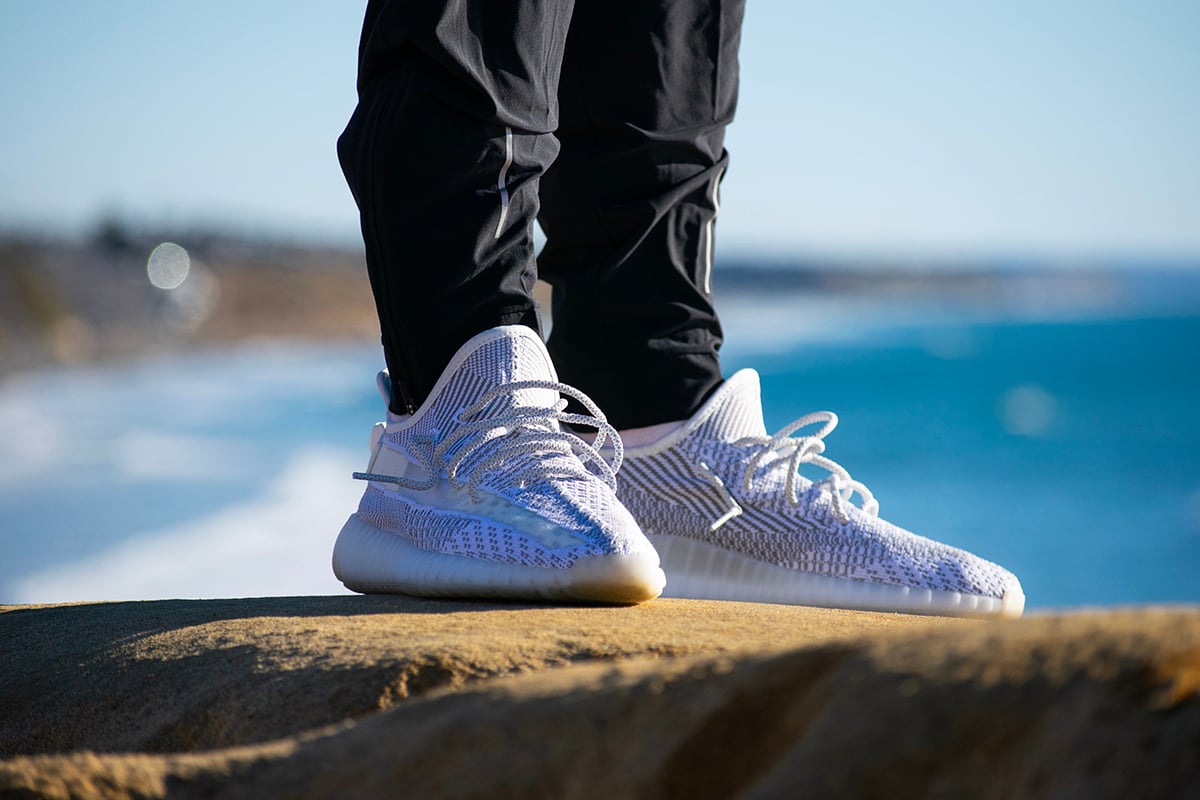Adidas has finally unveiled its plan for the millions of unsold Yeezy sneakers left in limbo after the company terminated its contract with the brand’s creator, Kanye West, last year.
The sports apparel titan, based in Germany, ended its collaboration with West following a series of antisemitic comments he made that the firm branded as “unacceptable, hateful, and perilous.” This decision left over $1.2 billion worth of Yeezy stock uncertain, with the company considering destroying the entire inventory at one point.
After months of consideration, Adidas has decided to sell the contentious sneakers, with all earnings directed to charitable causes.
“To turn the tide, we plan to gradually sell off this stockpile and donate the proceeds to charities that have supported us and were adversely affected by Kanye’s comments,” stated Bjørn Gulden, CEO of Adidas, at the company’s annual shareholders meeting, as reported by the Wall Street Journal.
According to Gulden, the specifics of the sales and subsequent charitable contributions are still being finalized. He added, “The exact timing and method for this is yet to be determined.”
When Adidas first partnered with West, they lauded him as “one of the most influential artists of this generation,” praising his unique fusion of music and fashion. The collaboration began in 2013 and saw West designing clothes and shoes for Adidas.
However, after West made antisemitic comments publicly and via tweets several times last year, he faced widespread condemnation. A video also emerged of West seemingly boasting about his ability to utter antisemitic statements without facing the consequences from Adidas, asking, “Now what?” multiple times in the interview.
Following these incidents, Adidas terminated its relationship with West. He was also dropped by other brands, such as Gap, Balenciaga, and the CAA talent agency, due to his controversial remarks, causing him to forfeit his billionaire status.
The severance with West cost Adidas an estimated €600 million (roughly $655 million) in lost sales in the final quarter of 2022, contributing to a net loss of €513 million (approximately $560 million) for the company. Adidas has also indicated that a complete write-off of the remaining Yeezy stock could result in a reported operating loss of about €700 million (around $764 million.)
Adidas’ shares listed in the U.S. rose by 1.5% by Thursday afternoon, though they remained 2.8% lower than last year.
Despite the financial setback, Adidas remains optimistic about its future. The company is refocusing on strengthening its core product lines and exploring new partnerships.
“We view this situation as an opportunity to reaffirm our commitment to our values and to demonstrate the impact we can make through our products,” Gulden stated. “Adidas will continue championing inclusivity and diversity, and we look forward to unveiling new collaborations that reflect these principles.”
Adidas has been known for its charitable efforts in the past. In this case, the proceeds from the sale of the unsold Yeezy stock will go towards organizations negatively affected by West’s remarks and other charities that align with Adidas’s mission. The specifics of which organizations will benefit are yet to be determined.
The decision to sell the Yeezy inventory for charity has garnered a positive response from the public and shareholders, despite the recent tumultuous period for the company. Many believe it’s a step in the right direction, turning an unfortunate situation into an opportunity for positive change.
Analysts also expect that this move will help to gradually restore Adidas’s reputation, which was tarnished by its association with West’s controversial remarks. While the Yeezy brand was highly influential and profitable, its decision to sever ties with West underscores its commitment to ethical standards.
“Adidas has shown that it prioritizes its values over profits,” said one analyst. “This decision could lead to a long-term boost in brand loyalty and consumer trust, which are invaluable assets in today’s market.”
Adidas is not alone in grappling with such a crisis. The incident has sparked a broader conversation in the industry about the balance between profit and social responsibility, notably when partnering with high-profile figures. Many companies are reevaluating their strategies and ensuring they have mechanisms to address future controversies swiftly.
As for West, his future in the fashion industry remains to be determined. However, this incident reminds all high-profile figures that their public actions and statements carry weight and can have significant consequences.
As Adidas navigates through this crisis, there are indications that the company is taking proactive steps to mitigate such risks in the future. It’s anticipated that they will establish stricter guidelines for collaborations and partnerships to ensure alignment with their core values and principles. This could include comprehensive background checks and more explicit contractual obligations regarding conduct.
Simultaneously, Adidas is exploring innovative strategies to diversify its portfolio and reduce its reliance on individual partnerships. This could involve investing more in in-house designs, promoting emerging talents, or engaging in collaborations with a wider array of partners across different industries.
“Adidas’s commitment to inclusivity and diversity extends to our partnerships,” Gulden emphasized during the shareholders’ meeting. “We are excited about the potential of working with a diverse range of individuals and organizations who align with our values.”
While the company begins to rebuild and refocus its strategies, market watchers and consumers keep a keen eye on Adidas’s next steps. The hope is that the lessons learned from this episode will lead to more ethical and sustainable practices in the corporate world.
Overall, this situation serves as a crucial reminder for corporations and celebrities alike about maintaining integrity and accountability in their actions. It also underscores the power consumers have in shaping the behaviour of brands and high-profile individuals and the potential for companies to turn setbacks into opportunities for positive change.







